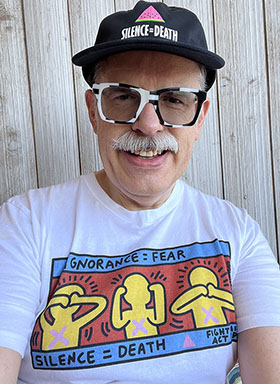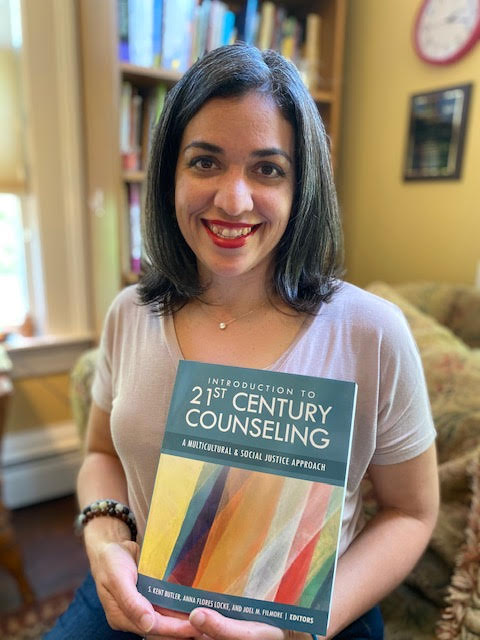For five decades we have prepared 1500+ professional counselors serving the Bronx, other NYC boroughs, surrounding counties in New York, Connecticut, New Jersey, multiple midwestern, southern and western US states, and countries including Cameroon, Canada, China, Spain, and Thailand.
Graduates of our programs work as bilingual and monolingual K-12 school counselors, college access/admission counselors, career counselors, in nonprofit community mental health agency settings, hospitals, substance misuse clinics, and group and private practices.
Clinical mental health graduates are eligible for a Limited Permit toward becoming Licensed Mental Health Counselors (LMHCs).
School counseling graduates are eligible for Initial Certification as School Counselors and Bilingual Certification with an additional 3 credits.
The Counselor Education: Clinical Mental Health Counseling M.S. is a 60-credit, 2-year, year-round, full-time, Online Residency cohort model program taught only on Saturday mornings and afternoons.
The Counselor Education: School Counseling M.S.Ed. is a 60-credit, 3-year, year-round, part-time, Online Residency cohort model program taught one evening a week usually Wednesdays nights with back to back classes at 6 and 7:50pm.
Both programs run 2 traditional 15-week semesters each year and 3-4 week inter-sessions in January, June and mid-July to mid-August. Bilingual candidates may, for 3 additional credits, complete a Bilingual Counselor Education Advanced Certificate. Both programs require 700 hours of field work–a 100-hour practicum and a 600-hour internship. The School Counseling program has been nationally accredited by the Council for Accreditation of Counseling and Related Educational Programs (CACREP) since 2008, and the Clinical Mental Health Counseling will begin the CACREP self-study process once the first cohort (Class of ‘25) has graduated.
In the late 1960s, Counselor Education began as Lehman emerged from Hunter-in-the-Bronx with a 36-credit M.S.Ed. focused on community and school counseling.
In the late 1990s, the focus shifted to school counseling with a partnership through the National Center for Transforming School Counseling.
In 2002, the program was redesigned to meet national accreditation standards, adding a 100-hour practicum and a 600-hour internship and required coursework in professional identity in school counseling, multicultural and social justice counseling, research and program evaluation, crisis, substance misuse and trauma, and leadership and advocacy and raised to a 48-credit M.S.Ed. program in Counselor Education: School Counseling.
In 2008, Lehman became the first public Counselor Education: School Counseling program in New York City to become CACREP-accredited.
In 2009, the program partnered with the National Office for School Counselor Advocacy to infuse college access/affordability/admission counseling in coursework and fieldwork.
In 2014, Lehman faculty and alumni were on the leadership team for the New York State Education Department’s first statewide School Counselor Summit, which led to five key recommendations for changing school counselor practice. Lehman faculty co-chaired the Higher Education committee and led writing the 2019 school counselor state regulation changes and new school counselor education state regulations.
From 2014-16, Lehman faculty partnered with and presented at the White House Reach Higher/School Counseling and College Access Convenings and received a grant through CUNY Central to create and add the College Access Counseling course. The Bilingual Counselor Education Advanced Certificate for program alumni and currently matriculated students began to enroll students.
In 2021, New York state approved the 60-credit Counselor Education: School Counseling M.S. program with increased emphasis on community, family, counseling children/adolescents, ability/disability, sexuality, bilingual, anti-racism, and anti-oppression work in school counseling. CUNY approved the 60-credit Counselor Education: Clinical Mental Health Counseling M.S.Ed. program.
In 2023, Lehman offered classes to the first cohort of Clinical Mental Health Counseling M.S. candidates.
In 2024, The program applied for a Clinical Mental Health Counseling Bridge program of 15 credits for school counseling candidates and program alumni. It also applied to put both School Counseling and Clinical Mental Health Counseling programs online with low residency. The program received permission to begin planning for New York City and CUNY’s first doctoral program in Counselor Education and Supervision to be housed at Lehman College. NY state began requiring a School Counselor Content Speciality Test (CST) for initial certification.
In 2025, the program received grant funding from SEIU to cover the tuition for CMHC candidates for two years as well as additional for faculty and staff. The program applied for CACREP re-accreditation of the Counselor Education: School Counseling program and first accreditation for the Counselor Education: Clinical Mental Health Counseling program.
The Counselor Education program received Workforce Development program funding from New York State with the Department of Social Work and co-created the first Bronx Telehealth Counseling Center at Lehman staffed by graduate students in both programs to offer family, couple, group, and individual counseling year-round via telehealth.
NY State approved both the Clinical Mental Health Counseling M.S. and School Counseling M.S.Ed. programs to go online with low residency. The Bronx Telehealth Counseling Center commenced as a fieldwork site for CMHC candidates with leadership and supervision from Counselor Education faculty. The first Counselor Education Arts in Counseling Milman Scholars Online Showcase, co-sponsored by Chi Sigma Iota, was a success; highlights and resources from the 22 student presentations are posted online, and it will be an annual event. Chi Sigma Iota also hosted a Transgender Culture workshop. The first cohort of CMHC students graduated as did the 55th cohort of SC students at the second annual Counselor Education graduation ceremony. Over 40 students were inducted into the Chi Sigma Iota Tau chapter honor society ceremony with guest speaker Dr. Monica Bland, LPC, NCC
A 900+ page self-study for re-accreditation of the School Counseling program and initial accreditation of the Clinical Mental Health Counseling program was uploaded for CACREP feedback and a future online site visit. Brightspace became the new learning platform. CUNY approved the CMHC Advanced Certificate for SC candidates and alumni that will commence with NY state approval.
In 2026 Planning begins for an online, low-residency, full-time doctoral program in Counselor Education and Social Justice offered with 2 classes on Thursday evenings and 2 classes on Saturday morning. Planning begins for an online low-residency, year-round, full-time 2 weeknight (M/Th) Higher Education/Student Affairs Counseling M.S.Ed. program. Planning began for an online, low-residency, year-round, full-time Saturday Couple, Family, and Relationship Counseling M.S. program (graduates eligible for LMFT licensure). A new assessment system replaces Taskstream, fully integrated with Brightspace, at no charge for students, combining teaching, learning and assessment in one software system.









.jpg)


